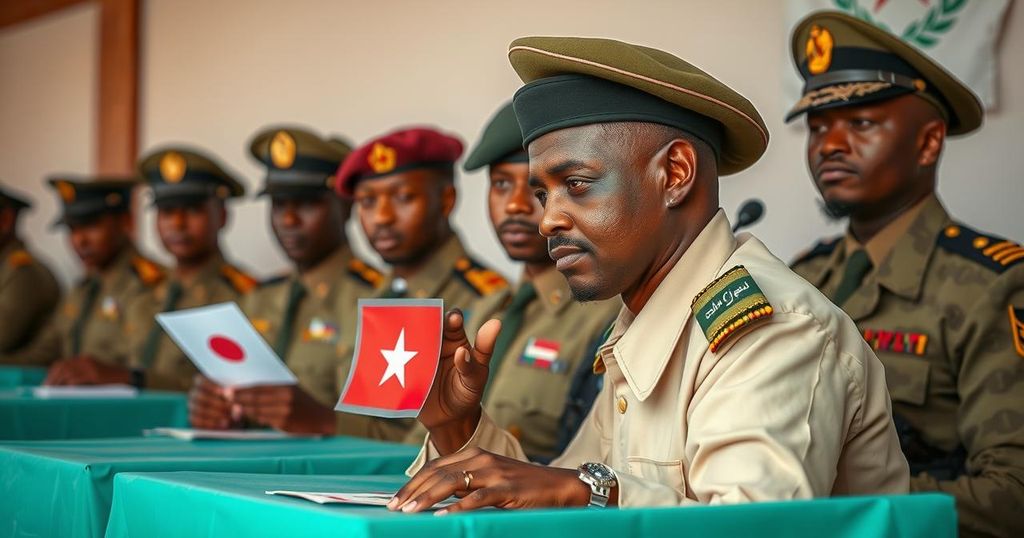Chad Holds Elections Amid Opposition Boycott and Allegations of Fraud
Chad held legislative, provincial, and local elections on Sunday after three years of military rule. Opposition parties boycotted, accusing the government of fraud. The elections are seen as pivotal for a transition to democracy, yet fears of electoral manipulation persist amid ongoing violence and a media blackout.
On Sunday, voters in Chad participated in legislative, provincial, and local elections, marking the culmination of a three-year period of military governance. Opposition candidates largely boycotted the elections, citing concerns over the legitimacy of last year’s presidential election, which they described as fraudulent. The ruling party, aligned with Marshal Mahamat Idriss Itno, faces allegations of electoral manipulation amid a backdrop of violence from groups such as Boko Haram and increasing autocracy within the regime.
The elections were considered by the government as a critical step towards a return to democratic rule following a military coup in 2021. Marshal Itno ascended to power after the death of his father, long-time dictator Idriss Deby Itno. The recent presidential election held in May was marred by claims of widespread fraud, leading to significant opposition outcry. Opposition leader Succes Masra remarked that participation in the election would not yield fair results, stating, “It is better to stay at home,” which reflects the discontent resonating among dissenters.
Accusations of ballot tampering were particularly pronounced, with the opposition Democratic Party of the Chadian People (PDPT) alleging the disappearance of over a thousand ballots designated for the Bongor sub-prefecture. This fueled fears of systematic fraud orchestrated by the ruling party’s networks. Despite these troubling circumstances, approximately eight million registered voters were expected to cast their votes, with polling stations open until 6 PM local time.
Additionally, the security situation in Chad remains precarious, aggravated by instability in neighboring countries and insurgent activities. The elections took place under significant scrutiny, necessitating oversight from foreign observers amidst a near-complete media blackout due to a strike by online journalists. The ruling government’s attempts to project stability and enthusiasm for the electoral process stand in stark contrast to the realities of growing dissent and repression.
Chad, located in Central Africa, has been in political turmoil, especially after the military coup that occurred in 2021 due to the death of long-term president Idriss Deby Itno. Under the leadership of his son, Marshal Mahamat Idriss Itno, the country has witnessed a transition towards a supposed democratic framework, with multiple elections announced post-coup. Opposition parties and their candidates claim that the government is infringing upon civil liberties and manipulating electoral processes to maintain power.
In summary, Chad’s recent elections unfold against a backdrop of significant political strife, marked by military rule and allegations of electoral fraud. The lack of opposition participation raises concerns about the validity of the electoral process, while accusations of ballot tampering highlight the regime’s repressive practices. As the nation seeks to navigate its political future, the legitimacy of these elections remains in serious question.
Original Source: www.france24.com




Post Comment